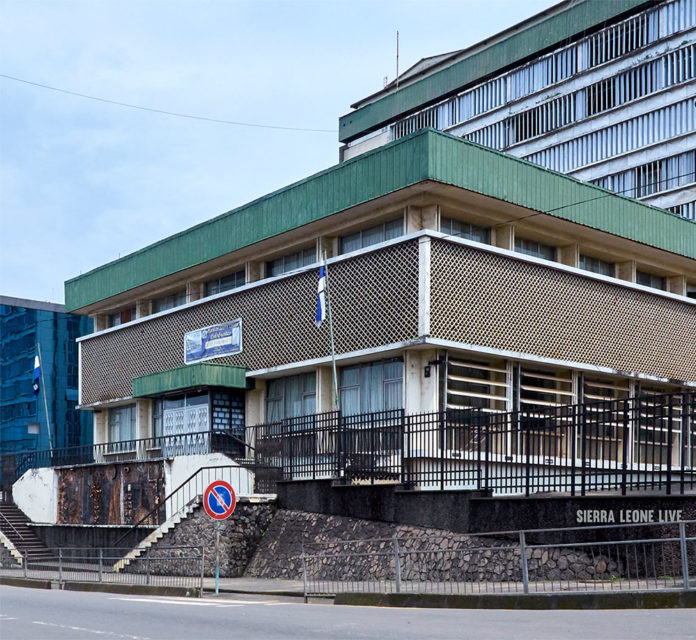Why did Sierra Leone’s economy fail to manage external shocks? More specifically why did President Bio’s government fail to build internal and external resilience to better navigate shocks? Policymakers under the current Bio led government in Sierra Leone often ask these questions, but it appears they usually do only when aftershocks are already disrupting our economy, making adjustment more difficult. For more than three years, policymakers in the Bio led government in Sierra Leone failed to understand that what is truly required to build resilience is a set of short and medium-term policies, all of which are consistent with long term economic strategies.
When faced with external shocks, the typical reaction from Sierra Leone policymakers under the Bio led government is to reduce the long term development budget (save free quality education) and protect recurrent expenditures. However, they failed to understand that these policies rob Sierra Leone’s economic capacity for growth and its ability to manage future shocks. Supporting the argument that policymakers under the current Bio led government refused to understand that in the very short term, managing shocks requires buffers at four levels:
- The first level should be composed of foreign exchange reserves that are accumulated in good times, including IMF balance of payments support. The government policymakers failed to understand that these foreign exchange reserves, should have sheltered the market from wild swings in domestic currency and supported smooth adjustments in the face of current account deterioration of external price shocks.
- The second should be a buffer of strategic food reserves. The Bio led government failed to understand that in times of scarcity or potential increase in international prices which often reflect in local prices, these food reserves help Sierra Leone maintain food security and mitigate pressures on the fiscal reserves as well as cushion wild swings in domestic food prices inflation drives.
- Third, the Bio led government failed to understand that there should be a buffer of oil reserves for an oil-importing country like ours. During the rise in pump prices, inflationary pressures on domestic prices are amplified and can be further exacerbated by the need for power generators for electricity.
- Finally, as Sierra Leone is dependent on commodity prices, the current Bio led government should have created a fund for smoothing out commodity price cycles or swings and ensure such funds are utilised without fair or favour to indigenous entrepreneurs nationally. Sierra Leone since independence lack such a buffer, which is why commodity price changes are often accompanied by economic crises.
Turning to medium and long term policy solutions to external shocks, it is important to first consider recent trends in economic performance and resilience within Sierra Leone. Over the last three years of the Bio led SLPP government, Sierra Leone’s economy experienced a very weak growth driven by weak or no improvements in institutional capacity, an environment of none policy clarity, a weak move towards political accountability, above all, an ineffective and inefficient development and implementation of long term growth strategies or visions.
The Bio government’s strategic country-level visions have, for the most part, failed to practically emphasise public investments to close the infrastructure gap, lower transaction costs and unlock productive areas for private investments. But public investments never encouraged complementary private investments at the same time with a sense to enhance the profitability of existing and future private investments through the channel of lowering transactions costs. The focus for the future should have been to professionally execute these trends and make sure that public investments are protected so that they can lay the groundwork and capacity for future growth, especially in terms of epidemic and natural disasters.
Importantly, the changing demographic dynamics will have a significant effect on Sierra Leone’s economy in the years to come. A large Sierra Leone middle class is emerging. This middle class if it’s a class of patriotic nationals that are desperate to see their country move forward in a number of tangible ways based on the resources we possessed as a nation. They’re innovators, policymakers and leaders that want to stop the flow of greed, corruption and other complete unpatriotic acts within the current policymakers and circulate wealth to all nationals irrespective of their income bracket.
Therefore, managing short-run shocks and protecting public investments for future growth will potentially become a reality once this group is drawn into the sphere of policy and economic management. In the past and to date, the Sierra Leone economy continue to suffer from the fact that there are too few incentives to advocate for public investments oriented towards future growth due to the delayed onset of benefits from these policies. To ensure follow through on public investments, Sierra Leone should only enter into meaningful regional arrangements where strong group pressures will provide additional political accountability.

